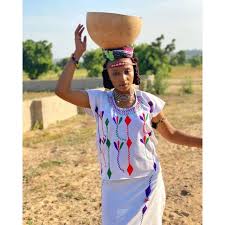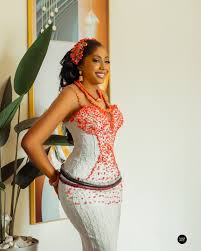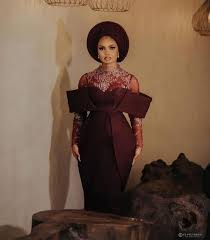The Nigerian Woman: A Cultural and Genetic Tapestry.
Nigerian women’s bodies are a rare combination of genetics, cultural history, and geographical variation. Nigeria is a cultural tapestry with over 250 ethnic groups, each with its own set of ideas and customs that shape body image and beauty standards. While it is vital to avoid generalizing about any group of people, certain characteristics commonly associated with Nigerian women reflect a combination of natural beauty, cultural pride, and tenacity that ought to be recognized.
Physique diversity varies among regions.
Nigerian women’s physique types reflect the country’s ethnic variety. The country is geographically divided into regions, each influenced by different environmental conditions. Northern Nigeria, for example, has a significant Hausa and Fulani population. Historically, Fulani women have been noted for their thin and tall forms, which are frequently celebrated for their grace and beauty. These physical traits are the product of generations of adaptation to northern Nigeria’s desert climate, which protects against the harsh sun and extreme heat. However, the attractiveness of Hausa women extends much beyond their physical appearance, as their aesthetic traditions, such as exquisite hair braiding and delicate body decoration, reflect a rich cultural legacy. (Angela Ngozi Dick, (2018) . Identity and Hair Narrative in Adiehe’s Americanah.)

In sharp contrast, the Yoruba and Igbo women from the western and southeastern parts of the country are often characterized by fuller and curvier body types. Body form variances are mostly caused by heredity and local lifestyles, such as eating preferences and geographical climates. For example, hotter climates in the north may have contributed to a thinner body form, whilst the more humid, agriculturally rich south has impacted more robust and curvier figures.
Curves are appreciated culturally.
In many Nigerian societies, curvaceous figures are highly regarded especially in the south. The Yoruba, Igbo, and other southern cultures regard a woman’s curves as a symbol of good health, fertility, and riches. This cultural ideal is reinforced by traditional dances, songs, and proverbs, which frequently exalt the female form in its most natural, luscious state. This preference for bigger bodies is consistent with the societal priority put on motherhood and family life, where a well-nourished body is viewed as indicative of a woman’s ability to produce children and care for her family. (Oluwakemi. M. Balogun & Kimberly Kay Hoang, (2018). Political Economy of Embodiment, Capitalizing Staged Bodies in Nigeria’s Beauty Pageants and Vietnamese Sex Work.)


Furthermore, in pre-colonial periods and even now, traditional beauty norms in Nigeria frequently emphasized bigger figures, with many tribes celebrating wider hips and thicker thighs as signs of beauty and desirability. This contrasts with Western standards, which frequently promote leaner body types, especially in the fashion industry, and thus emphasize the cultural significance of the Nigerian woman’s body in its natural state.
Body Adornment & Enhancement.
Beyond the physical body, Nigerian women use numerous sorts of body ornamentation to enhance their distinctive attractiveness. Traditional practices, such as waist beads (known as “ileke” in Yoruba), are employed not just for aesthetic, but also cultural and spiritual reasons. Waist beads are regarded as a symbol of femininity and sensuality, and are frequently worn to highlight the waist and hips. Furthermore, scarification and tribal marks, while less widespread today, were formerly an important cultural tradition that contributed to a woman’s identity and unique attractiveness.
Beauty trends in Nigeria today have evolved in response to changes in fashion, media, and worldwide influences. Nigerian women have perfected the skill of combining traditional beauty with modern improvements like makeup, body sculpting, and fitness, resulting in a dynamic and diverse image of femininity.
The Influence of Confidence and Cultural Identity.
The confidence with which the Nigerian lady carries her body is one of her most outstanding features. Nigerian women are noted for their courage, strength, and sense of self. The Nigerian woman’s body, whether dressed traditionally or in current design, is more than just a physical form; it represents cultural pride, tenacity, and the ability to adapt to a quickly changing world.
The diversity, cultural relevance, and confidence with which the Nigerian woman presents her body make it distinctive. From curvaceous proportions to tall, slim shapes, each body type offers a tale formed by history, location, and cultural traditions, transforming Nigerian women into true embodiments of beauty in all forms.
